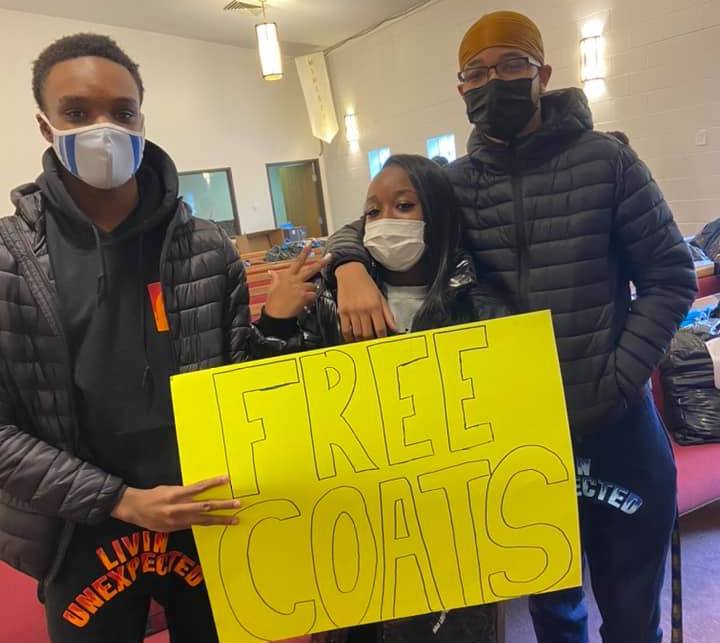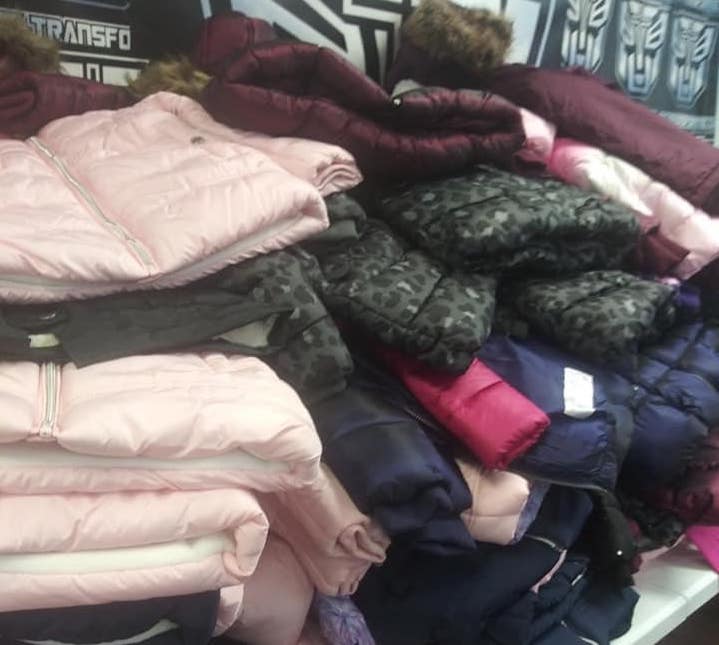“Good Neighbor” Grants help churches, neighborhood groups meet families’ immediate needs
Published on February 15, 2021 in Crisis Relief
As the cold weather hit this winter, thousands of Metro Detroit families received the warmth and help they needed, thanks to a partnership between United Way for Southeastern Michigan and a group of local churches.
In late 2020, Mount Charity Church’s Transformation Life Center received a $100,000 Good Neighbor Grant from United Way to manage a network of 15 other area churches working to distribute household necessities to families in the community.
Rev. Talisha Belk of Transformation Life Center said the grant came just in time for the holidays as many families struggled to make ends meet on top of the demands of the holiday season.


A growing need
Transformation Life Center hosts an “adopt a child” program every year for nearly 75 children at Durfee Elementary-Middle School in Detroit to help meet their needs for Christmas, which included the distribution of educational toys as well as hats, coats, socks and scarves. This year, however, requests for help skyrocketed due to the ongoing COVID-19 pandemic.
“The list was overwhelming,” said Rev. Belk. “A lot of parents had lost their jobs and their kids hadn’t been in school. A lot of people don’t understand that many inner-city kids are at greater risk being at home than at school.”
Rev. Belk said the organization partnered with the school to get a list of students in need before a terrible realization set in.
“We got the list, and we knew we couldn’t help all of these kids, or we’d have to lower the amount we would do per child,” she said.
That’s when Rev. Belk approached United Way of Southeastern Michigan for assistance.
She wrote a proposal to United Way in December requesting funding for their adopt-a-child program and other efforts, in partnership with a cohort of other churches. The group received the grant the same month, launching the organization into a mad dash to bring Christmas to the community.
“We made sure every child that needed help at that school received something for Christmas,” said Rev. Belk. “When our organization dropped off gifts, we did a toy giveaway for other families in need. This grant has helped us tremendously and there was no way to meet this effort without United Way.”
Bringing warmth to the community
The organization continued to use the grant money in partnership with 15 area churches for its United Winter Relief event Jan. 16, which distributed coats, hats, socks, gloves and scarves for the community.
“We ended up purchasing more than 3,000 coats, expecting a need of 2,000, but we had to shut down our reservation list because demand was so high in our community. We made a wait list to see if we can help those families in need.”
Now, the group of churches is working to provide personal protection equipment, COVID-19 testing and other supplies.
Rev. Belk said the need for aid has always been high in Detroit, and her church has previously assembled and delivered hygiene kits for kids including soap, deodorant and feminine products to help combat a hygiene-related bullying problem at Durfee. Transformation Life Center has also adjusted what it gives due to the pandemic, pivoting from school uniforms to pajamas, socks and lounge clothes since many children in Detroit don’t have access to comfortable clothing, as well as detergent and other cleaning supplies.
“Our ultimate goal is to continue to be the lighthouse for our community as well as continue transforming outside the walls of the church,” Rev. Belk said. “We’re here to spread love, hope and peace – all those things that we take for granted when we’re in our cozy beds at night.”
Immediate support for immediate needs
Tonya Adair, chief people equity and engagement officer for United Way for Southeastern Michigan, said the Good Neighbor Grants – like the one awarded to Transformation Life Center – were created to provide immediate support to grassroots leaders and community advocates who go above and beyond to address the needs of the most vulnerable in their communities.
When Tonya and the Education team at United Way received the request from Transformation Life Center, they knew it was too immediate to let the request go unanswered.
“When there’s an immediate need or a cry for help, sometimes you don’t have time to tell that person to wait until we can receive requests for proposals for another grant program,” Tonya said. “The need is immediate, and in the case of Transformation Life Center, there were children suffering who needed the bare essentials to enjoy the Christmas holiday.”
COVID-19 relief efforts continue
The Good Neighbor Grants are just one of many ways United Way has worked with partners — large and small — to provide funding to innovative solutions meeting community need. These grassroots partnerships are especially important when serving the Black community and other communities hardest hit by the health and economic impacts of the pandemic.
Our COVID-19 Community Response Fund distributed more than $600,000 through 119 Good Neighbor Grants. And our winter relief effort, announced in December 2020, awarded $1 million in grants to area agencies addressing needs exacerbated by the COVID-19 pandemic, such as food insecurity.
Before COVID-19 hit, more than 44 percent of Southeastern Michigan households already struggled to afford their basic needs. The pandemic has only made things worse, Tonya said.
“We already have issues in the winter season normally, so with this winter relief program, we’re trying to be proactive in anticipating what’s coming due to the pandemic,” she explained.
Tonya said distributing these grants is a start, but there’s still much work to be done when it comes to addressing long-term needs in the community. She said she won’t be satisfied until she sees people make the shift from “surviving” to “thriving.”
“It’s a great feeling knowing you’re able to support someone else,” she said. “But it’s temporary because you know the need is so much greater and there’s so much more that needs to be done. We celebrate that we were able to help in this instance, but we immediately get back into figuring out what else we can do to address the constant need in our communities.”